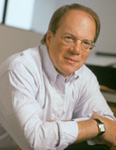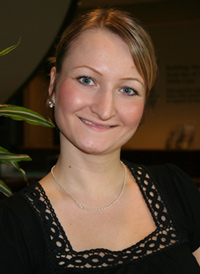 Wisconsin Lawyer
Wisconsin Lawyer
Vol. 85, No. 7, July 2012
 Alexandra Chugina grew up in Chelabynsk, Russia, an industrial center just east of the Ural Mountains. She attended the Chelabynsk State University, where she studied to become an English and German teacher. She had learned English since elementary school, as it was a required part of her education. In 2005, while still a student, she came to the United States to work for the summer in the Wisconsin Dells, under the auspices of her university's work and travel program. She was just one of many people who come to the United States every year to work in the hospitality industry in the Dells.
Alexandra Chugina grew up in Chelabynsk, Russia, an industrial center just east of the Ural Mountains. She attended the Chelabynsk State University, where she studied to become an English and German teacher. She had learned English since elementary school, as it was a required part of her education. In 2005, while still a student, she came to the United States to work for the summer in the Wisconsin Dells, under the auspices of her university's work and travel program. She was just one of many people who come to the United States every year to work in the hospitality industry in the Dells.
Alexandra did not return to Russia. She kept working in the Dells, met and married her husband, and began attending Madison Area Technical College to earn a degree in meeting planning. She won a scholarship from the Wisconsin Chapter of Meeting Planners International in 2008 and in 2009, following graduation, Alexandra Harjung began working for the State Bar of Wisconsin as a meeting planner. But Alex, as we call her, never stopped studying.

On April 26, 2012, after years of self-study, Alexandra Harjung went to the federal courthouse in Milwaukee, raised her hand in front of federal Judge Margaret Dee McGarity, declared her allegiance to the United States of America, and became a citizen.
Alex intentionally took a major step that most of us take for granted. She decided to become a citizen of our country, which is not the country of her birth and her family. Along the way, she had to study and pass a test that, I suspect, many people born here could not pass; a test on U.S. history, geography, and governmental institutions.
Of course, how can we expect our students, or the adults they become, to pass a test on subject matter for which there are few if any required courses? Editorials urge schools to emphasize science and math. But what about understanding the U.S. system of government, the functioning of which depends on an informed citizenry? Too often today, political campaigns rely on the hope that people will make uninformed, emotional decisions after seeing and hearing accusation-filled 20-second-long commercials. To be able to cut through that purchased emotion and understand what really is being said, or not said, requires an understanding of what our government does, and who does it and how.
I went to elementary and high school in Illinois, and back in the dark ages (meaning the mid-1960s), eighth graders were required to pass a test on the Illinois Constitution and government. That began my appreciation for what government does for us and how it gets done.
The State Bar is doing its part. For years, our high school mock trial program has taught tomorrow's leaders about the judicial branch of government; the joint Supreme Court/State Bar program Courts with Class will expand next year to reach more students; and the new Our Courts program is designed to reach Wisconsin residents wherever they might gather.
We have a long way to go to catch up with Alex. When we no longer hear such things as reporters asking State Bar presidents to explain the difference between the Wisconsin Supreme Court and the U.S. Senate, students being told that Mount Everest must be in the United States because it has an English-sounding name, and students asking if Abraham Lincoln freed the slaves before or after World War II, then we know we will be on the same course nationally that Alexandra Harjung took on her own.
Welcome, Alex.
Wisconsin Lawyer
